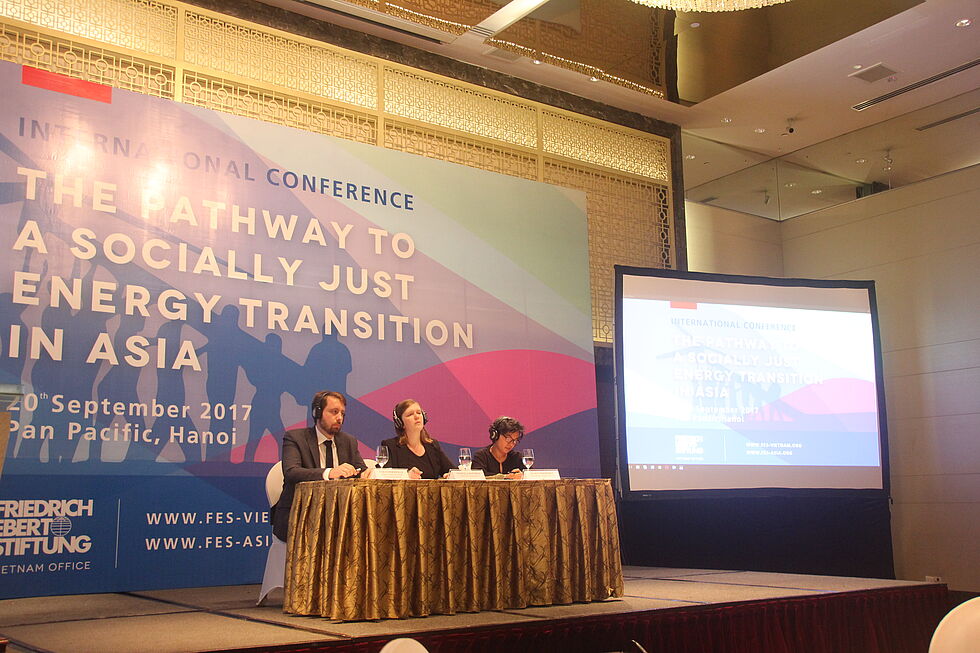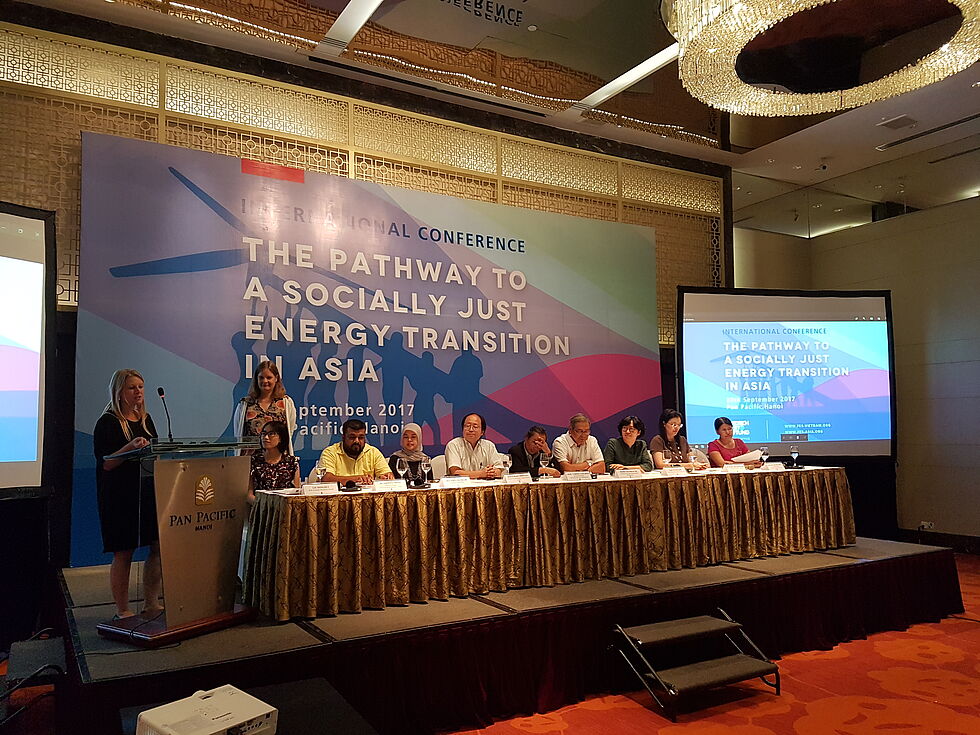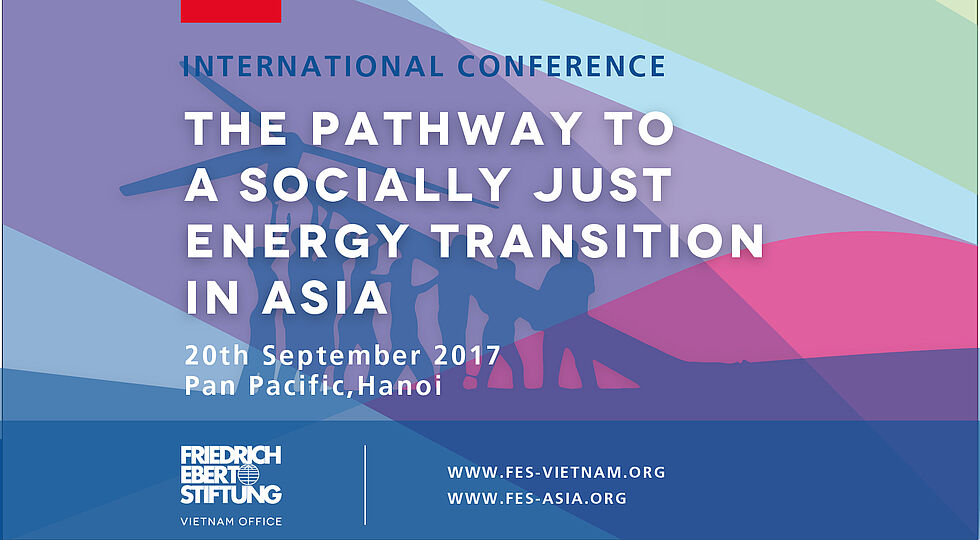“The energy transition is moving fast - don´t jump on the ship too late!”
Panel discussion with Lukas Hermville, Manuela Matthess and Wanun Permpibul (from left to right). Photo by Julia Balanowski
Yvonne Blos, Deputy Director of FES Vietnam Office, and authors from China, India, Indonesia, Japan, Philippines, the Republic of South-Korea, Thailand, and Vietnam. Photo by Julia Balanowski
The conference served to introduce a series of country studies and a meta study on a socially just energy transition in China, India, Indonesia, Japan, Philippines, the Republic of South-Korea, Thailand, and Vietnam. To this end, experts from all eight countries and beyond came together with a numerous Vietnamese audience to share their knowledge and experience.
Fuelled by input from two lectures by Lukas Hermwille from the Wuppertal Institute for Climate, Environment and Energy and Wanun Permpibul from the Asian Consortium for Climate Change, the participants started engaging in passionate discussions on what a clean energy system constitutes, about different governance styles, fairness aspects in burden sharing as well as public health and green jobs aspects. There was unanimity among the experts for the need of visionary policies and political leaders, new participation and decision making structures, for an impetus of the private sector in energy transformations, tax-neutral reforms and subsidies phase out. This would facilitate among countries a climate-friendly path in order to keep global warming to well below 2 degrees as stated in the Paris Agreements, which has been ratified by many Asian countries.
“The fossil-fuel era has come to an end”, as Hermwille pointed out. Participants and speakers agreed that the signs towards a clean energy direction are set on go across the region: 18 Asian countries are already planning to expand their share of renewable energies, and 8 even pursue a full decarbonization by 2030. Access of electricity has significantly improved in many Asian countries. The region has introduced renewables far more quickly than the Western world, which shows its huge innovation dynamics. “The question for these countries is: How can they be part of a transition that moves very fast?”, as Prof. Miranda Schreurs from the Technical University of Munich and author of the meta-study, put in a nutshell.
The speakers repeatedly referred to the strength of the Paris Agreement as a multilateral treaty in this process. “The United States will be the loser because of not being part of the Paris Agreement”, predicted Prof. Schreurs, being an US American citizen herself. “What US is doing, is opening a gate to China, India, and so on - and you will go ahead instead of them. Don´t jump on the ship too late – come on board now!”





